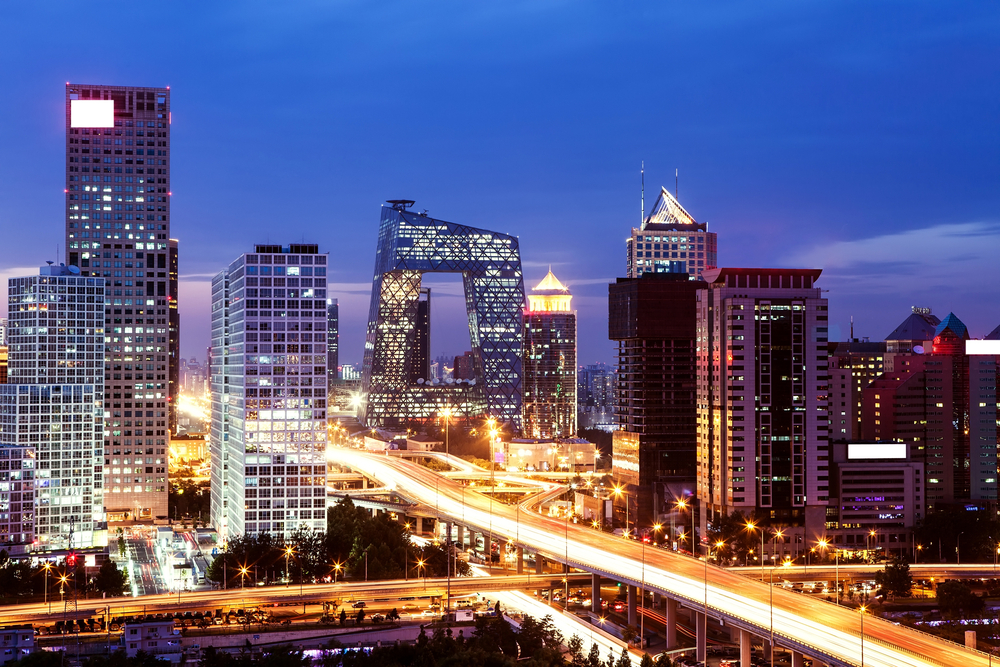Breaking
Mounting indications of a China-Japan summit, as Beijing hosts friends and rivals during APEC
BEIJING — Will they or won’t they? Whether leaders of feuding China and Japan will meet during the Asia-Pacific summit has prompted much speculation. It’s the most — but not the only — awkward relationship testing the hospitality of an increasingly assertive Beijing.
There were mounting indications that Chinese President Xi Jinping and Japanese Prime Minister Shinzo Abe would hold some kind of tete-a-tete, however brief and unsubstantial, during the Asia-Pacific Economic Cooperation summit Monday and Tuesday.
On Friday, China and Japan reached agreement to ramp up high-level contacts, more than two years after Beijing froze them amid a dispute over islands in the East China Sea and other contentious issues. The thaw came at a time when the relations need a nudge to get back on track, and the APEC gathering of 21 economies around the Pacific Rim, including the U.S., Australia, Mexico and South Korea, provides excellent cover to do so.
“Until now the door was closed, unfortunately, but this agreement has achieved a momentum,” Japanese Prime Minister Shinzo Abe said on BS Fuji television.
The summit is the highest-level international gathering Xi has hosted since taking leadership of the ruling Communist Party two years ago. Yet, awkwardly, APEC also includes many countries that Beijing has alienated over the past year or more.
China’s ties with both Vietnam and the Philippines have been rocked by dueling territorial claims over islands in the South China Sea. Anti-Chinese riots broke out this summer after China moved an oil rig into waters claimed by Vietnam and vessels from the sides sparred in the area for weeks.
Beijing has made no secret of its dislike of Philippine President Benigno Aquino III, and actually disinvited him to a trade fair in China last year after he incensed China by seeking U.N. arbitration to solve the territorial disputes.
Relations with Canada have been troubled by Canadian allegations of Chinese computer spying and China’s detention of a Canadian couple under murky circumstances.
Xi’s warmest ties will likely be with Russian President Vladimir Putin and South Korea’s President Park Geun-hye, who is also at odds with Japan.
Meanwhile, Beijing’s vital but complex ties with the United States are haunted by mutual suspicion, fed by economic, security and human rights concerns. Some of their most pointed exchanges have come over U.S. accusations of Chinese computer hacking that prompted Beijing to break off a bilateral dialogue on the issue.
China will hope that all of these tensions can be put aside for the APEC forum as it pushes a regional free trade initiative, the Free Trade Area of the Asia-Pacific, as an alternative to the stalled, U.S.-backed arrangement called Trans-Pacific Partnership, or TPP.
The tensest relationship is between China and Japan, which have had poor relations for decades. Japan fears China’s inexorable rise and Beijing feels that Tokyo has yet to show true contrition for its brutal twentieth century invasion of China.
The animosity in recent years has focused on a dispute over a cluster of uninhabited islands in the East China Sea that are controlled by Japan but also claimed by China. The two sides have confronted each other repeatedly at sea and in the air around the tiny islands, called Diaoyu by China and Senkaku by Japan.
Relations remained strained after the late 2012 election of Abe, a conservative nationalist who infuriated China when in 2013 he visited a Tokyo Shinto shrine honouring Japan’s war dead, including executed war criminals — an act Beijing says shows Abe’s insensitivity to China’s suffering during the war. His government’s reinterpretation of Japan’s pacifist constitution to allow a greater role for its military has also has raised alarm in Beijing.
Xi and Abe’s first interaction likely will come Monday at a welcoming banquet, and leaders of all 21 economies will attend the full summit on Tuesday.
Pointing to a possible meeting, the Chinese foreign minister has said Beijing would exercise “necessary hospitality toward all the guests.” But the official Xinhua News Agency has seemed to dampen expectations, saying Japan can’t expect an improvement in ties while it continues its “bigoted course of fomenting strife.” Tensions are blamed in part for a nearly 50 per cent drop in Japanese investment in China in the first half of 2014. That’s especially painful because China’s economic growth rate slowed sharply to a 7.4 per cent in the third quarter, a five-year low.
China is believed to want assurances from Tokyo that Abe won’t visit Yasukuni again and for it to acknowledge that a dispute exists over the islands, which Japan has refused to do _ terms that Tokyo is almost certain to reject.
Speculation that China may now be open to a meeting was stirred by Vice-President Li Yuanchao’s audience with a delegation of Japanese local governors in late October, followed a week later by Xi’s greeting of a former Japanese prime minister, Yasuo Fukuda, at a forum in Beijing.
On Thursday, Japan dispatched Abe’s special adviser to Beijing in what was widely seen as a last-ditch effort to arrange a meeting. The envoy, National Security Adviser Shotaro Yachi, agreed with Chinese Vice Premier Yang Jiechi for the two countries to “gradually resume political, diplomatic and security dialogues,” according to almost identical statements by the two foreign ministries.
Speaking after Friday’s deal, Abe said, “I believe everyone wants us to put an end to tensions between Japan and China.”
“It would be extremely significant for us to show the rest of the world our efforts to fulfil our responsibilities for the region’s peace and prosperity,” he said.
Most likely, Beijing will agree to break the ice with an informal session between the two leaders, said Feng Wei of the Center for Japanese Studies at Fudan University in Shanghai.
“I don’t think it will achieve a breakthrough, but it’ll be a step by the two sides toward defusing the situation,” Feng said.
While a meeting might be no panacea for the problems facing the relationship, even a handshake, a photo opportunity or a 15 minute sit-down could at least show a willingness to stem the deterioration in ties.
“There is going to be a meeting in all likelihood, but not anything very substantial,” said Koichi Nakano, professor of political science at Tokyo’s Sophia University.
Not meeting would make both sides look stubborn, Nakano said, “and that is not in the interest of either leader.”
Associated Press writers Elaine Kurtenbach, Ken Moritsugu and Mari Yamaguchi in Tokyo and news assistant Yu Bing in Beijing contributed to this report.






















